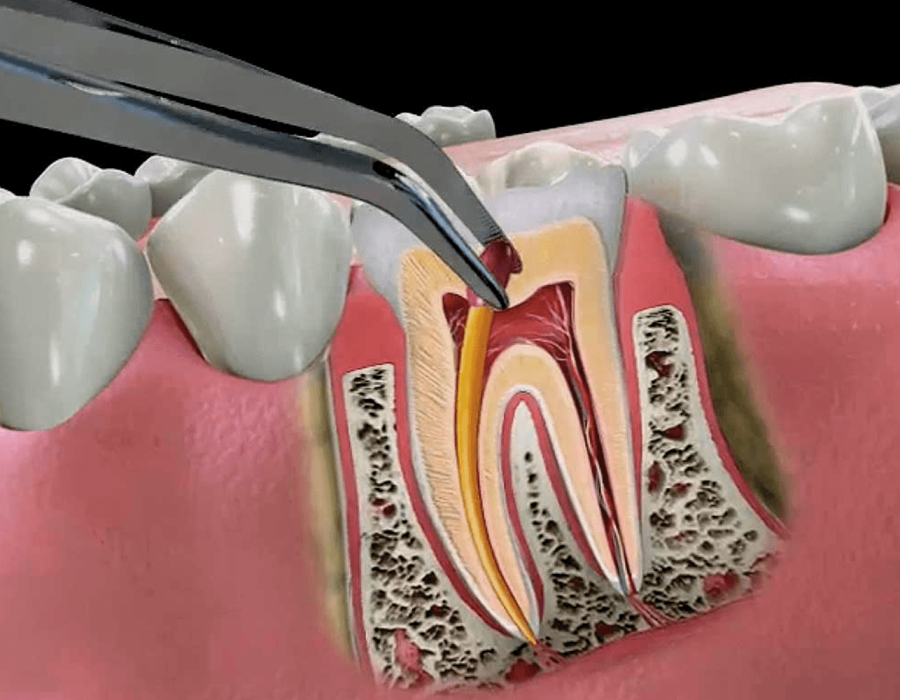Dental discomfort caused by deep decay or infection often requires more than a simple filling. In such cases, a nerve filling becomes a vital treatment to save the tooth and eliminate pain. Many patients now seek Nerve Filling with Inflammation in Dubai due to the city’s advanced dental facilities and expert practitioners. This procedure helps treat inflammation within the tooth’s nerve while preserving its natural structure. Understanding how nerve filling works, what happens during the treatment, and what recovery involves can ease anxiety and help you prepare for a smooth dental experience.
Understanding Nerve Filling:
A nerve filling, also known as root canal therapy, is a specialized dental treatment that removes infected or inflamed tissue from inside the tooth. The pulp chamber, which contains nerves and blood vessels, can become compromised due to decay, injury, or repeated dental procedures. When this happens, inflammation and pain occur, often making daily activities like eating and speaking difficult. A nerve filling eliminates the source of infection by cleaning and sealing the canals, restoring both comfort and functionality. This allows patients to retain their natural teeth while preventing the infection from spreading.
Causes of Tooth Nerve Inflammation:
Tooth nerve inflammation develops when bacteria enter the inner layers of the tooth, leading to pulp infection. Common causes include:
- Deep cavities or untreated tooth decay
- Cracked or chipped teeth exposing the nerve
- Repeated dental procedures on the same tooth
- Gum disease that spreads to the root area
- Physical trauma or injury to the tooth
- If left untreated, inflammation can worsen, causing abscesses and even bone loss. Nerve filling stops this progression by addressing the infection at its source and restoring oral health.
When You Might Need a Nerve Filling:
Certain symptoms can signal the need for a nerve filling. Recognizing these signs early allows for prompt treatment and better outcomes. Key indicators include:
- Persistent toothache or throbbing pain
- Prolonged sensitivity to hot or cold
- Swollen or tender gums near the affected tooth
- Discoloration or darkening of the tooth
- A small pimple-like bump on the gums
- If you experience these symptoms, consult a dental professional immediately. Early diagnosis can save your tooth and prevent the infection from spreading to other areas of the mouth.
The Step-by-Step Procedure:
Nerve filling treatment typically involves several steps, all performed under local anesthesia for comfort. Here’s what to expect during the process:
- Examination and X-rays: The dentist evaluates the affected tooth and takes X-rays to determine the extent of infection.
- Anesthesia: The area is numbed to ensure a pain-free experience.
- Access Opening: A small opening is made in the tooth to reach the infected pulp.
- Cleaning and Shaping: The dentist removes the infected tissue and disinfects the canals.
- Filling: The cleaned canals are filled with a biocompatible material to seal them from bacteria.
- Restoration: The tooth is restored with a filling or crown for protection and strength.
- This step-by-step process ensures that the infection is fully removed and that the tooth remains functional for years to come.
Benefits of Nerve Filling:
Nerve filling offers multiple advantages for patients struggling with inflammation or infection. Key benefits include:
- Immediate pain relief and elimination of infection
- Preservation of the natural tooth structure
- Restoration of normal chewing and biting ability
- Prevention of future dental complications
- Long-lasting results with proper care
- For patients suffering from severe inflammation, this treatment not only relieves discomfort but also helps maintain a healthy and confident smile.
What to Expect After Treatment:
After the nerve filling procedure, mild discomfort or tenderness may occur, which is completely normal. Most patients return to their daily routines within a day. To ensure smooth recovery, follow these tips:
- Avoid chewing on the treated tooth until it’s fully restored with a permanent crown.
- Take prescribed pain relievers or antibiotics as directed.
- Maintain excellent oral hygiene by brushing and flossing gently.
- Attend follow-up appointments to monitor healing.
- Avoid very hard or sticky foods that may damage the restoration.
- With proper care, your treated tooth can remain strong and healthy for many years after the procedure.
Nerve Filling in Dubai:
Dental clinics in Dubai are known for offering cutting-edge technology and highly skilled specialists in nerve filling procedures. Patients choosing Nerve Filling with Inflammation in Dubai benefit from advanced diagnostic tools, precise laser-assisted techniques, and comfortable treatment environments. The cost of the procedure may vary depending on factors like tooth complexity and the number of roots treated. However, investing in high-quality dental care ensures effective results, reduced discomfort, and long-term oral health. Consulting a reputable endodontist helps ensure the procedure is tailored to your specific needs.
Preventing Tooth Nerve Inflammation:
Prevention is the best approach to avoiding nerve-related dental problems. By adopting healthy oral habits, you can reduce the risk of infection and inflammation. Here’s how:
- Brush at least twice daily using fluoride toothpaste.
- Floss regularly to remove plaque between teeth.
- Limit sugary and acidic foods that erode enamel.
- Visit your dentist every six months for check-ups and cleaning.
- Wear a mouthguard if you play contact sports.
- These simple steps help protect your teeth from damage and minimize the likelihood of needing a nerve filling in the future.
Final Thoughts:
Understanding what to expect during a nerve filling can help ease anxiety and prepare you for a smooth, successful treatment. This procedure effectively removes infection, relieves pain, and saves your natural tooth. With advancements in modern dentistry, Nerve Filling with Inflammation in Dubai provides safe, efficient, and lasting solutions for patients seeking relief from inflammation. By maintaining good oral hygiene and following your dentist’s recommendations, you can enjoy long-term dental health and a confident smile. Trust professional care to restore both comfort and confidence in your oral well-being.






Comments